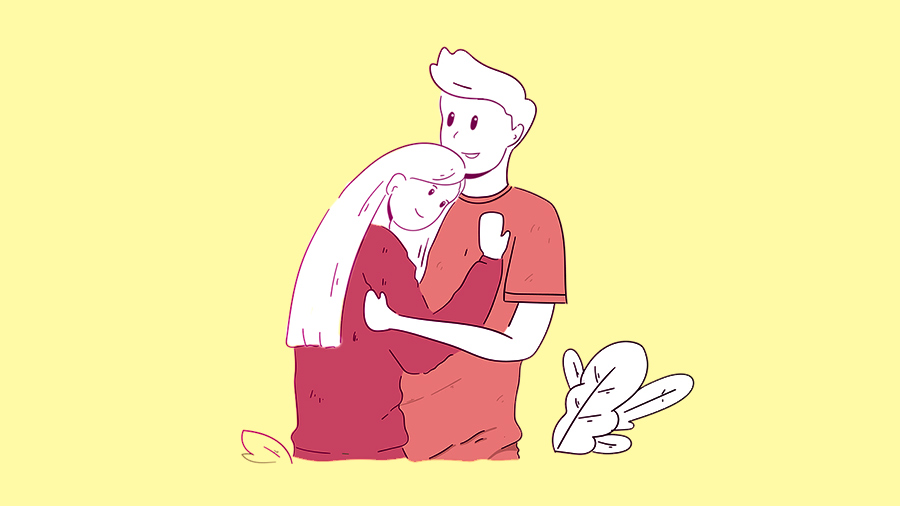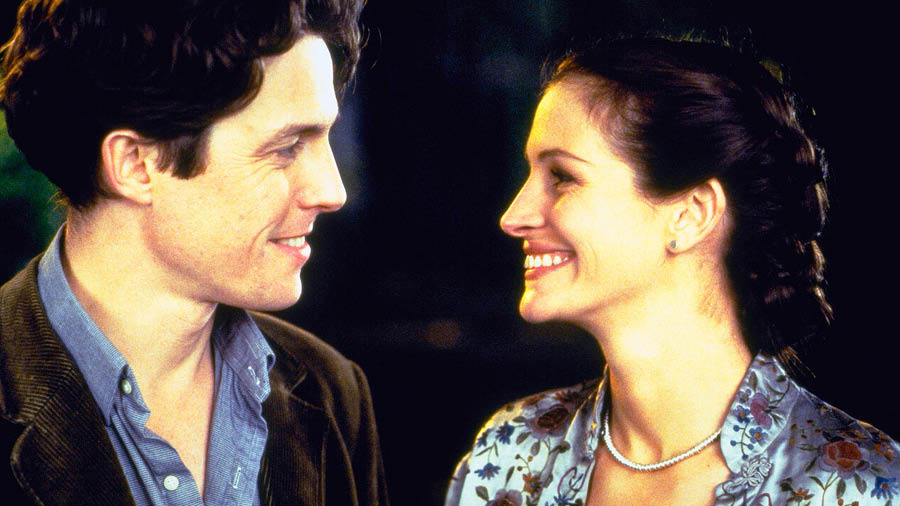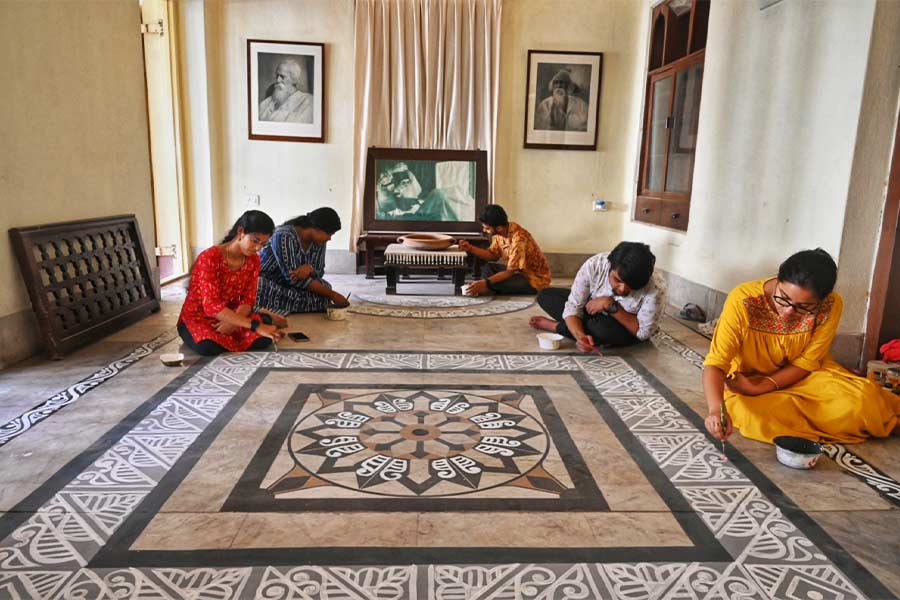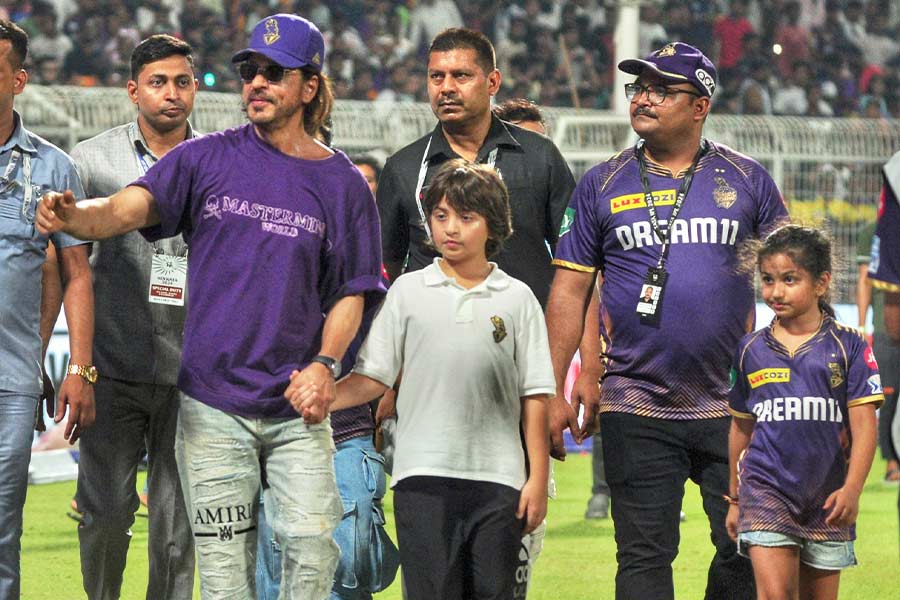What is love? Science tells us that love is a form of biological bribery meant to aid cooperation between the sexes through a cocktail of oxytocin, dopamine and serotonin. Literature tells us that love is the most compelling human emotion available that can inspire and intoxicate as deeply as it can entrap and exasperate. Bollywood tells us that love is transcendental, something that can be fatalistic and/or fatal. Our parents (not all parents, though) tell us that love is about sacrifice, compromise and adjustment, about replacing rose-tinted glasses with those of prudence and pragmatism. To me, a 25-year-old Kolkatan in 2023, love (sticking to its romantic version) is about waiting. It is about nurturing a feeling of “anxitement” that makes us anxious and excited, often simultaneously, as we wait for a text, a call, a meme, a package or just a smile. In an age of instant gratification, love is a test of patience, forged with and/or against distance, desires and destinies. It is about creating space and filling up time, about finding an anchor amidst waves of chaos. Or is it?
Drowning in attention, striving for connection

We may understand Instagram, but we find it much more difficult to understand intimacy. With emotional and sexual boundaries becoming increasingly porous, Gen Z often cannot wrap its head around what is genuine love
UnsplashMy peers and I are a part of what is commonly referred to as Generation Z or Gen Z (or Zoomers), grouping those born between the late ’90s and the early 2010s. Compared to previous generations, Gen Z has turned out to be more educated and better behaved but also more stressed, depressed and financially insecure. Or, as sections of Twitter like to call it, “woke but broke”. As the first generation that grew up with the internet (initially as a slow luxury and then as a fast necessity), our digital existence frequently envelops our real one. We are residents of an attention economy where we are always looking and being looked at, seeking and being sought. What does this do to how we love? For starters, we seem to struggle to make connections that feel genuine. We may understand Instagram, but we find it much more difficult to understand intimacy. With emotional and sexual boundaries becoming increasingly porous, Gen Z often cannot wrap its head around what is genuine love, what is simply a fling and what, in modern lingo, is a situationship (the romantic love child of Jane Austen and Karan Johar?). This is perhaps why we can be in love with someone but not declare our love for them, as if commitment and clarity are triggers for jealousy and jeopardy. This is not to say that monogamous relationships are not popular among Gen Z. Instead, it is to imply that exclusivity and long-term bonds are no longer the default setting. Unlike most of our parents and grandparents, entering into a relationship is much more complicated for us, even if leaving it is far simpler. With the relentless curation of the self on social media and dating apps, Gen Z has been fed two distinct ideas. First, there is a never-ending pool of people out there who can be the right fit for us, only if we probe to match, mix and manoeuvre our way through it. Second, we alone should have the right to choose what sort of love we want for ourselves. It follows that all of us should, at some stage or the other, try to find out what kind of love and lover(s) are ideal for us. Ironically, the more we try to explore and explain love, the more it tends to elude us.
True love does not need 24x7 validation, it only needs 20 yards…

The relationships that thrive among Gen Z are the ones where partners do not expect anything and everything from each other
ShutterstockPerhaps love and the fulfilment that comes with it runs away from us because we are not supposed to chase it in the first place. Perhaps it makes more sense to view love not as choice, but as chance, to let circumstances and not algorithms take charge. Either way, if and when we attain love, retaining it proves far harder. Especially in a world where 24x7 access calls for 24x7 validation. Sad about a bad day at work? Turn to your partner. Cannot figure out what to wear for the next family function? Turn to your partner. Craving a profound conversation interspersed with Netflix and ice cream? Turn to your partner. No matter how good (or bad) the partner, eventually they cannot keep up with the demands of an equation that invites them to step in for every possible emotional, psychological and physical need. This is what leads to resentment and the birth of toxicity, a situation where one or both individuals in a relationship know it is right for them to part but cannot do so because of their mutual reliance. No wonder then that the relationships that thrive among Gen Z are the ones where partners do not expect anything and everything from each other, but are happy to distribute the load among family and friends. (The next time you see your best friend cut you off just because they have started dating, warn them).

The more we try to explore and explain love, the more it tends to elude us
PixabayBut even if you are in a happy relationship and only bicker about Spotify and “close friends” lists, how do you know that the person you are with is “the one”? The wise answer to this would be that it is foolhardy to believe in the illusion of “the one”. But love and wisdom rarely gel, which is why I have a more creative answer. Something I call the 20-yard test. Imagine you are meeting your beloved for a coffee date, shopping or a film outing. Reach the appointed place first and wait for them to arrive. As you see them approach you, step back or forward (depending on your exact positioning) to create a rough space of 20 yards (about 18m) between the two of you. As they slowly walk towards you, there should be a few seconds allowing you to identify them clearly without observing minute details about their appearance. This is the window where you may or may not have a realisation. For which you need to ask yourself two questions. First, do you feel your peripheral vision narrowing and your heart rate rising as your partner comes closer? Second, do you both have an accurate estimate of each other’s wardrobes and finances? If either of the answers is positive, chances are you have found “the one”!
Love without labels
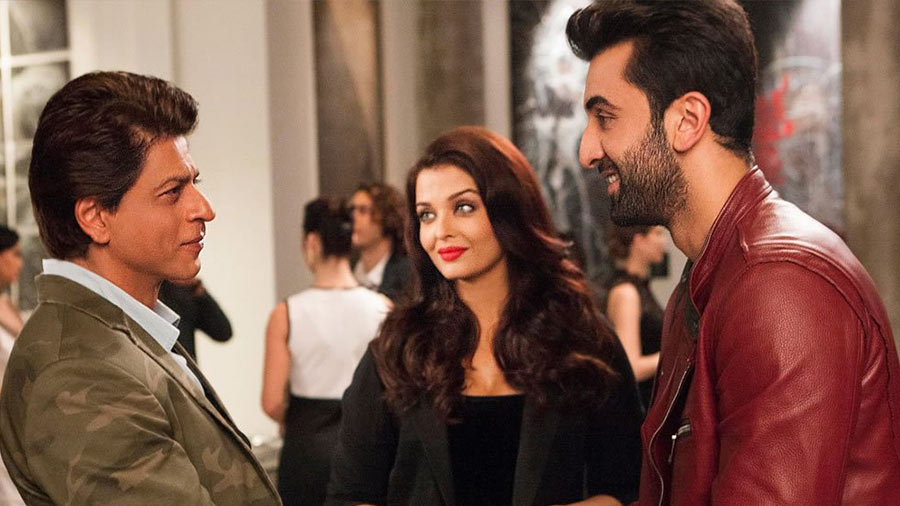
Shah Rukh Khan, Aishwarya Rai Bachchan and Ranbir Kapoor in a scene from ‘Ae Dil Hai Mushkil’
But what about those who are not particularly interested in “the one”, for whom love is more about discovery and less about the destination? The sort who, having read their way from Emily Bronte to Sally Rooney, are no longer interested in bending love to their will. The sort who have grown to reject the sanctimonious selflessness of Shah Rukh Khan’s most cherished avatars as well as the immature individualism of Ranbir Kapoor’s most memorable man-children. For them, I propose something many of us have felt as part of Gen Z, but rarely attempt to articulate. Something called love without labels. This is the kind of love where expectations do not turn into obligations, where boundaries do not limit horizons. Where two people love each other not because they should or because they must. But because they can. How does this differ from the trend of situationships, you ask? It differs in how the people involved do not see themselves as easily dispensable. The ambiguity of love without labels is not a product of “keeping one’s options open” (as in a situationship), even if it does not assume exclusivity. Rather, it is a result of being careful and considerate of where two people stand (both in relation to life and each other) before contemplating where they could be going. It is an effort at focusing on the present instead of the future, on what is and not on what could be or what might have been. Is such a thing dangerous? Maybe. Is it worth the danger? That depends on one’s disposition. Some of us may relish love without labels, while others may resist it, even retreat from it. But in a hyper-consumerist society where every label comes with an expiry date, it is tempting to give up on defining love and allow love to define us — our values, our morals, our choices. And if, in doing so, such a love endures, we would have found what we set out to know after all. What, then, is love? Love is whatever lasts.



